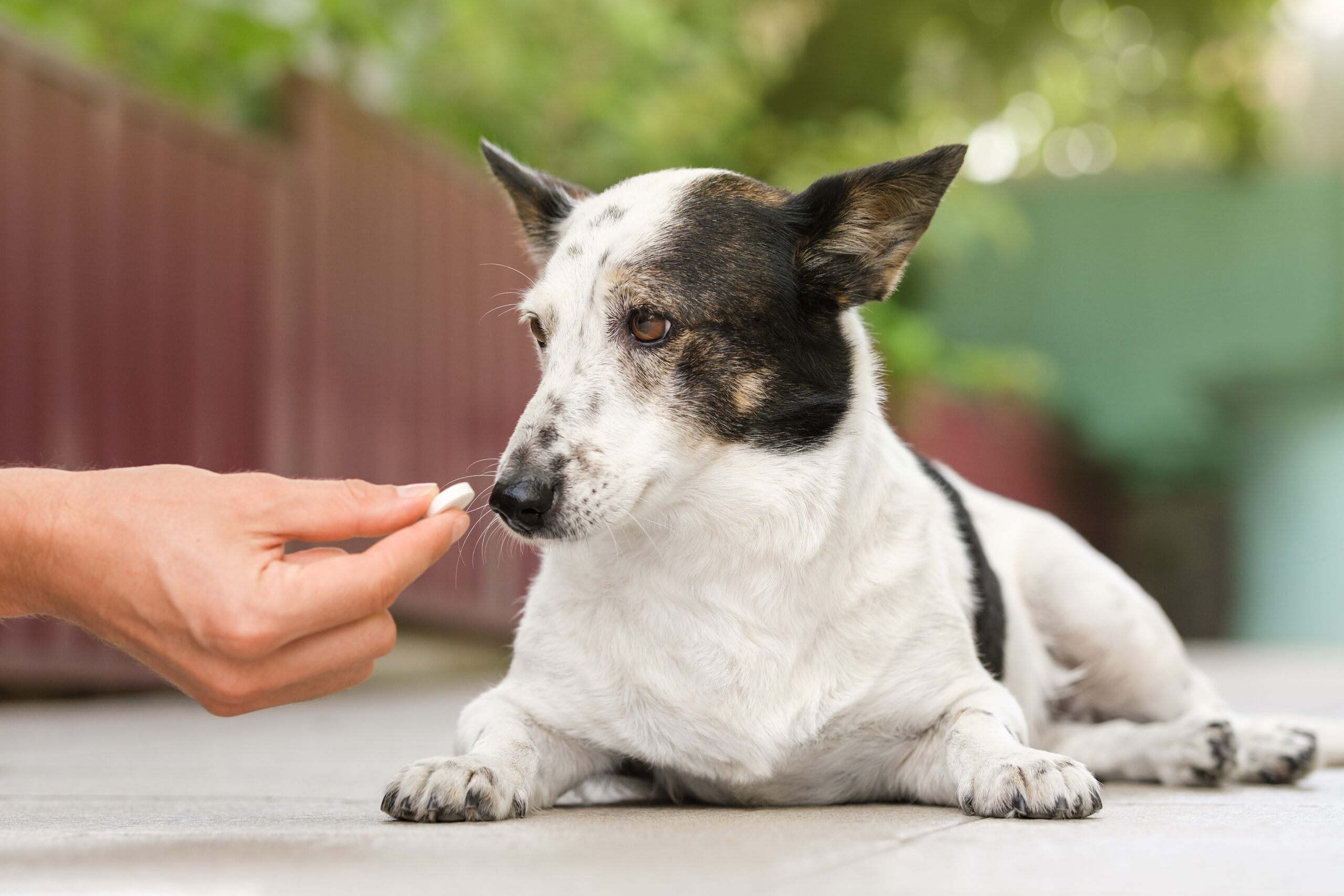I have had one experience with Rimadyl, and it wasn’t good. This goes back to when Spencer was 4 years old. Spencer loved the pool and one day he jumped in and somehow hurt his back leg. I took him to the vet and thankfully it was only a mild sprain and he prescribed Rimadyl for the inflammation.
The vet told me that Spencer may have an upset stomach and diarrhea from the Rimadyl but not to worry about it. I remember the diarrhea was immediate and didn’t stop. I was so worried about the medication that I stopped it after a couple of days. I opted for “bed rest” instead and within a week he was fine. After that episode, Spencer stopped jumping in the pool and used the steps to get in and out of the pool.
Since that incident with the Rimadyl, I researched the side effects and was amazed that this is the medicine of choice for inflammation issues with dogs. It reminds me of the drug commercials on TV, they tell you to take this drug for x health issue and then spend the next 45 seconds explaining the harmful effects of the drug ending with it could cause death.
Let’s take a closer look at Rimadyl
Rimadyl is a brand name for a medication called carprofen. It is a nonsteroidal anti-inflammatory drug (NSAID) that is used to manage pain and inflammation in dogs. Rimadyl is specifically formulated for dogs, and it works by inhibiting the production of prostaglandins, which are chemicals in the body that cause pain and inflammation.
Why do Veterinarians prescribe Rimadyl?
The most common reason a veterinarian prescribes Rimadyl is to manage pain and inflammation in dogs. The number one cause of chronic pain in dogs is arthritis or degenerative joint disease. Rimadyl is an effective pain management medication. It can be used to treat a wide range of conditions that cause pain and inflammation, including osteoarthritis, hip dysplasia, and other musculoskeletal disorders.
Side effects to watch out for:
- Vomiting
- Diarrhea
- Loss of appetite
- Lethargy or weakness
- Increased or decreased drinking.
- Yellowing of gums, skin or whites of their eyes
- Seizures
- Urinary changes (color, frequency or smell)
- Bloody stool
- Skin issues (redness, itching or scabbing)
Serious side effects that Rimadyl can cause:
- Stomach ulcers or bleeding
- Liver or kidney damage
You must be vigilant if your dog is taking Rimadyl or any medically prescribed NSAID as they can cause sever gastrointestinal problems that could lead to stomach bleeding or liver disease. There have also been reports where dogs experience allergic reactions, which may include swelling, hives, or difficulty breathing.
Why I have chosen to give my dogs Green-lipped mussel oil every day.
Since 2009, I have given all my dogs a green-lipped mussel oil supplement and have NEVER had any reason to give my dogs Rimadyl or any other NSAID. None of my dogs have exhibited any signs of joint stiffness or arthritis.
Spencer and Bella were older when I first learned of green-lipped mussel oil, you can read their story About Us. All my other dogs were younger when they started daily doses of green-lipped mussel oil. Sidney and Cooper were both 2 when I adopted them. Brandy was 4, Harley 6 months and we estimate Sasha was at 2 ½.
I firmly believe that the green-lipped mussel oil did exactly what clinical research says about GLM, that it alleviates mobility-related disorders such as osteoarthritis and degenerative joint disease.
Providing green-lipped mussel oil to my pets has provided the following:
- A natural anti-inflammatory.
- Protected their cartilage.
- Boosted their immune system.
- Strengthened their bones.
- Helped to prevent the development of arthritis.
No matter the age of your dog, you should supplement their diets with Essential OMEGAS. If you have a younger dog this SUPERFOOD will help their overall health as they age. For older dogs GLM will help alleviate any pains they may have due to arthritis and soothe their aching joints. Buy Now!




